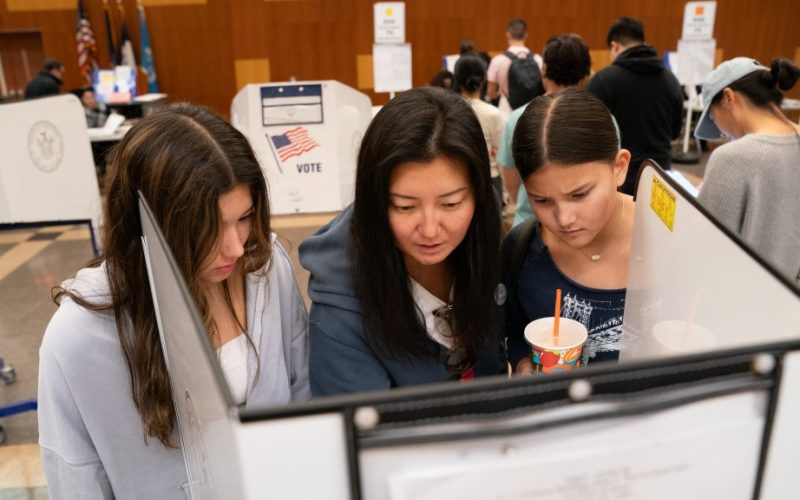Once again, the state Senate has kicked off its session by passing a slate of helpful election policy reforms and we bet that also once again, the Assembly will dawdle and let the bills die, to the detriment of all New Yorkers. The result will be no change, gee thanks.
The probably never to be enacted reform package is meant to make voting easier and more transparent, including creation of a “back-end” voter registration system — when data from agencies like the DMV is automatically transmitted to voting authorities for registration — the ability to create county-wide polling places, prohibitions on foreign spending and more.
The government should always aim to be efficient and responsive, but there is a particularly acute need to run things smoothly and with as little friction as possible when it comes to elections specifically, because it is not just one more bureaucratic process. The ability to vote is a fundamental right, not a privilege or a benefit. Without it, all else are details in a democratic system meant to be responsive to the voices of the public.
We implore the Assembly to surprise us by passing these bills instead of once more refusing to take action. We know the reason they’ve been so lethargic on reforms: mucking with voting is messing with the formula that has gotten them to and kept them in elected office for years. The unfortunate reality is that many legislators are more than happy to coast by on incumbency and low voter turnout, confident that they will rarely if ever face real electoral competition.
An expansion of voting rights or even just making balloting processes easier is a direct threat to this easy advantage, and they’d just rather not deal with it and risk their own seats. Yet we should expect our elected leaders to work for their reelection, to feel real pressure from the voters as opposed to the easy life of coasting on low-turnout races where a small but semi-dedicated base can keep delivering wins indefinitely as most of the voters in the district couldn’t name their representative.
Voting reforms are not a silver bullet solution; instituting them does not in and of itself boost turnout or increase civic participation, as the many other states and localities that have implemented versions of these policies can attest. The (unfortunately too limited) introduction of ranked choice voting in NYC did not automatically fix the city’s abysmally low turnout, nor has online voter registration brought out millions more voters in the state.
Nonetheless, these are baseline solutions that build on themselves — not a ceiling, but a floor for a sense of voters feeling able to participate fully and to some extent seamlessly in elections.
Every voter who receives no assistance from an understaffed and overstretched Board of Elections, is misled by deceptive advertising or untraceable foreign cash, finds out too late that they were not actually registered to vote or otherwise comes to regard voting as a hassle is one that’s hard to win back, and who may well tell their own friends and family to just not bother.
Elected officials should not consider the system as working just dandy because they managed to win office, they should instead strive to improve it for other candidates and the voters.








